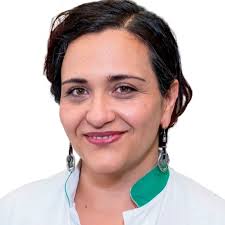- Lectures
- Institute of Biomedical Sciences
- Location
B1C Auditorium, IBMS
- Speaker Name
Dr. Tokameh Mahmoudi (Erasmus MC, Netherlands)
- State
Definitive
- Url
Dr. Mahmoudi’s research has focused on delineating the precise molecular events and identification of the key molecular players that drive pathogenesis resulting from infection with two viruses: HIV, which causes AIDS, but in presence of antiviral treatment maintains a chronic disease in patients defined by the presence of a latent replication competent viral reservoir, and HBV, which causes liver cirrhosis and is the leading cause of hepatocellular carcinoma. Dr. Mahmoudi tackles translational bench-to-bedside questions in the areas of HIV and HBV Cure, using innovative multidisciplinary strategies. She uses an integrated approach where the precise molecular and functional determinants of viral infection and gene regulation are leveraged to unravel an effective pharmacological approach to modulate and target processes in HIV and HBV latency and persistence and HBV infection-related liver cancer. This interdisciplinary approach, which requires virology, immunology, pathology, conventional biochemistry, genetics, high throughput, single cell omics and infectious disease expertise at the clinic, is carried out in context of state-of-the-art patient-derived in vitro (organoid) platforms, a caveat that has been, until recently, lacking. Using convergent approaches the goal is to develop innovative tools to precisely assess viral persistence, and discover “drug-able” molecular targets and curative therapeutics in each disease model.
Key publications:
Crespo R, et al. 2024 iScience. 27(3):109152.
Hossain T, et al. 2024 Communications Medicine (Lond). 4(1):123. doi: 10.1038/s43856-024-00553-4.
Prins HAB, et al. 2023 Science Advances 9(11):eade6675.
Ne E, et al. 2022 Nucleic Acids Research 50(10):5577-5598.
Hossain T, et al. 2022 Bio Protocols 12(8):e4392.
de Crignis E, et al. 2021 ELife. 10:e60747.
Rao S, et al. 2021 Nature Communication 12(1):2475.









 Home
Home

